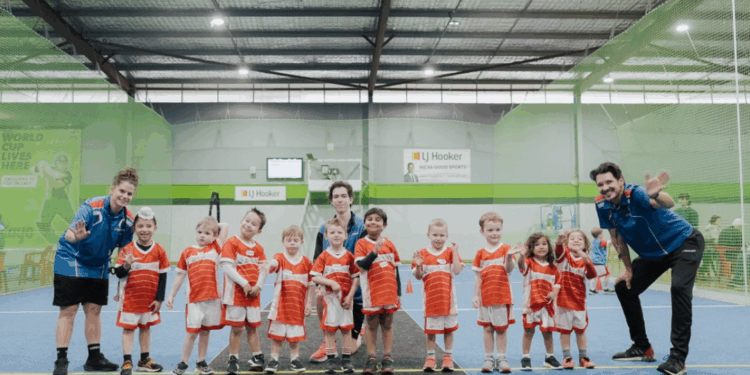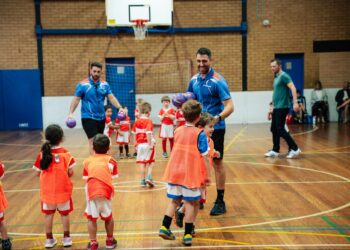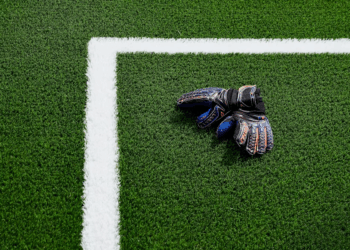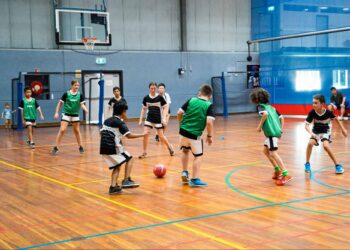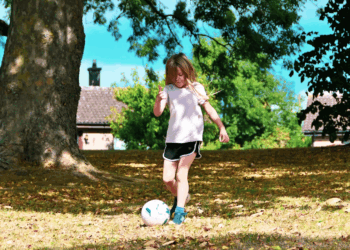The Importance of Sport in Early Childhood
As parents, we all want our children to grow in confidence, develop healthy habits, and find joy in being active. While school PE classes play an important role, specialised programs for early childhood sports like Soccajoeys offer something different—particularly for children in their early years.
Let’s explore how these programs compare and why they matter in your child’s development.
Growing Skills Earlier: Starting Before School Does
Most school PE programs begin around age 5 or 6, when children are already in primary school. That’s a great introduction, but it means kids miss out on the benefits of sports in early childhood where movement and play have the biggest developmental impact.
Soccajoeys welcomes children from as young as 2.5, using age-appropriate activities to build motor skills, coordination, and confidence. These early experiences form the foundation for lifelong healthy habits.
Learning Without the Pressure of Competition
In many schools, competition is introduced early—there are winners, scores, and sometimes the pressure to perform. For some children, that’s motivating; for others, it can be discouraging.
Soccajoeys takes a different approach: play first, competition later. Sessions are non-competitive, inclusive, and designed so every child can join in, no matter their ability or prior experience. The focus is on enjoyment, resilience, and building a love of movement.
Programs Designed for Each Age and Stage
Children don’t all develop at the same pace. A 6-year-old might be ready for more structured teamwork, while a 3-year-old is still learning how to follow simple instructions.
That’s why Soccajoeys runs four distinct programs:
- Minis (2.5–3 years): Gentle introduction to movement and social play.
- Preschool (3–5 years): Building core movement skills and teamwork through fun games.
- Junior (6–8 years): More complex group activities and skill-building.
- Premier (9–11 years): Developing advanced skills while keeping sessions fun and supportive.
This tailored approach ensures kids are challenged in ways that suit their stage of development.
More Than Just Soccer: Learning Through Movement
School sports often focus on learning a set of rules or positions for a particular game. While useful, that can sometimes skip over the bigger picture—movement itself.
Soccajoeys uses soccer as the vehicle for teaching essential movement skills: balance, spatial awareness, coordination, and body confidence. These abilities don’t just help in sport—they support children’s overall growth, learning, and wellbeing.
Coaches Who Understand Early Childhood
PE teachers are skilled professionals, but their training usually focuses on older children and often simply coaching competitive play. Soccajoeys coaches receive specialised training in early childhood development, giving them the tools to:
- Adapt activities to toddlers and preschoolers,
- Encourage children gently through new challenges,
- Recognise each child’s progress individually.
It’s this personal attention that helps children feel seen and supported in smaller, more nurturing groups.
When Soccer Comes Into the School Day
Interestingly, Soccajoeys doesn’t only operate outside of schools. Through its School Soccer Program, sessions are delivered during PE time from Kindergarten to Year 6.
These classes align with the State Board of Studies K–6 curriculum, are taught by FFA-accredited coaches, and run in short, engaging 35-minute blocks. Beyond fitness, children gain:
- Improved social and emotional skills,
- Healthy lifestyle awareness,
- Confidence and teamwork,
- Fundamental movement patterns they’ll use in all areas of life.
This partnership approach ensures kids benefit both in and out of school.
A Space That’s Made for Kids
Another difference parents notice is the environment. School PE often happens outdoors or in shared facilities that can be affected by weather and schedules.
Soccajoeys programs are delivered in dedicated indoor spaces, with child-friendly equipment and a safe, consistent setup. That means classes run rain or shine, and kids always learn in an environment designed for them.
Welcoming Every Child, Whatever Their Starting Point
School programs sometimes assume children already know how to throw, catch, or run with confidence. Soccajoeys meets children exactly where they are.
Whether your child has never played a sport or already loves being active, the sessions are designed so they can progress at their own pace. Over the years, many hesitant beginners have grown into confident, active children through this approach.
The Bigger Picture: Setting Kids Up for Life
Early childhood is a critical window for building healthy behaviours. Research consistently shows that ages 3–5 are especially important for developing movement patterns and confidence. Missing this stage can make learning physical skills harder later.
By combining movement, play, and social connection, programs like Soccajoeys don’t just prepare children for sport—they help shape positive attitudes toward health, learning, and activity that last a lifetime.
The Parent Takeaway
School PE is important, but early childhood soccer programs provide something schools often can’t: a personalised, development-focused environment that starts earlier, adapts to each child, and builds a genuine love of being active.
For families across Australia, investing in these programs has proven valuable—not just for building soccer skills, but for nurturing confident, resilient, and healthy children.
It’s not about choosing between school PE and specialised programs—it’s about recognising how they work together. PE gives variety and structure, while programs like Soccajoeys offer depth, early foundations, and individual attention.



